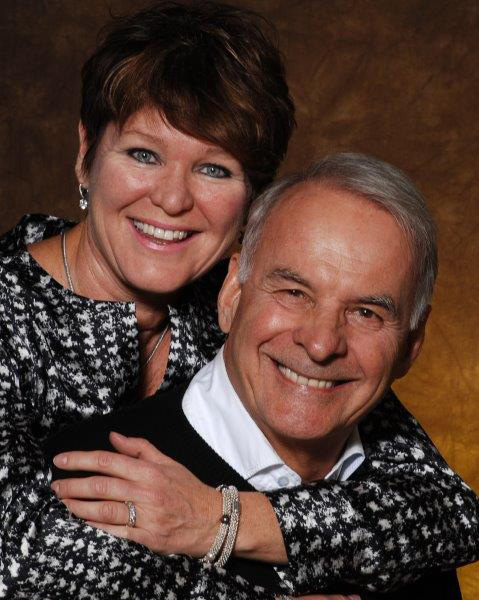
Most members of the McGill community have stepped into a Couche-Tard at least once – after all, there is one right across the street from the Stewart Biology Building on Dr. Penfield Ave. But few could probably name Alain Bouchard, who grew the company from one store in Saint-Jérôme, Que. in 1980 to an international retail leader with $35 billion in annual sales.
The Sandra and Alain Bouchard Foundation has recently given a $4-million boost to scientists at the Montreal Neurological Institute and Hospital (The Neuro), establishing the Sandra and Alain Bouchard Intellectual Disability Research Program (BIDRP).
As President of the Foundation and Bouchard’s spouse, Sandra Chartrand is working to spread the family’s good fortune around. Intellectual disabilities affect about 900,000 Canadians – including Chartrand and Bouchard’s son, Jonathan – and are associated with a variety of conditions, including Down syndrome, genetic disorders or exposure to environmental pollutants. This donation is one of the largest-ever for research in this oft-neglected field, and will allow scientists at The Neuro to probe the genetic and molecular basis of intellectual disabilities and share their work with the world.
This isn’t your first gift to support intellectual disability research; the foundation also gave a $3-million donation to Montreal pediatric hospital CHU Sainte-Justine. Why did you choose to support The Neuro with this gift?
There has been relatively little research done in this field, and we know that. So when the scientific director at the MNI, Dr. Edward Fon, proposed a visit to The Neuro to see what we might be able to do, we were interested. We met with him and his colleagues to learn more about the impact we might be able to make, and the plan they had to turn our gift into scientific progress was really impressive. As part of the BIDRP, there will be a collaboration with the CHU Sainte-Justine to combine clinical and genetic data in the Neuro’s biobank, and the scientists at The Neuro will create a toolkit for future experiments with genes associated with intellectual disabilities. These projects will be included as part of The Neuro’s open science project, which Alain and I are happy about. We believe that if scientists can collaborate and find common ground, then real progress can be made.
You named the Chair at CHU Sainte-Justine you created after your son, Jonathan, who has cerebral palsy and an associated intellectual disability. Do you hope that your gift to The Neuro changes the lives of people who face the same challenges that Jonathan does?
When we made the gift to Sainte-Justine for a Chair in intellectual disabilities, I really wanted to have Jonathan’s name on it. Jonathan is a happy kid, he has a good life and we’re thankful for it. His intellectual disability is mild, so although he will always be like an eternal adolescent, he can live independently. The gift that we’ve made to The Neuro won’t have any impact on his life, but gifts like ours could have an impact on future generations of people with lives like his. It starts with research; without it, there could be no progress.
Do you consider philanthropy an important part of your life?
I’ve always considered giving back to be an important part of my life. I helped run fundraising campaigns for Centraide and the CHU Sainte-Justine Foundation in the 2000s. Soon after I retired from the fundraising field as a professional, I decided to work in a similar capacity as a volunteer. I’ve always loved the arts a lot. I’m not a musician, but I’ve gone to concerts since my college years, so I joined the board of the Laval Symphonic Orchestra in 2003 and stayed until 2009. I’m currently on the board of the National Museum of Fine Arts in Quebec City, but I will be leaving the museum’s board soon, too. Even when things are going well, I think after a certain amount of time it’s important to leave and make room for others and their ideas. Sometimes, it’s just time to step aside.
Are you involved in any other projects at the moment?
The Sandra and Alain Bouchard Foundation is not that old, we started about three years ago and it took some time to get it off the ground. The Foundation has two axes; we focus on intellectual disability and the arts. We try to study all potential projects carefully and really think about what we want to do. So we’re excited about the gift that we’ve made to The Neuro, and we’re also thrilled to have contributed to a new $100-million expansion at the National Museum of Fine Arts in Quebec City, which will open very soon. It’s an exciting time for us and for our Foundation.
Related article
$4 million for research on intellectual disabilities
